I have added the following simple test event on my mysql database via phpmyadmin:
CREATE DEFINER=`root`@`localhost` EVENT `my_event`
ON SCHEDULE EVERY 1 MINUTE STARTS '2013-05-27 00:00:00'
ON COMPLETION NOT PRESERVE ENABLE DO
BEGIN
UPDATE `test` SET `name`="z";
END
My environment is mac + MAMP Pro. I am expecting to change all rows on my 'test' table with name 'z' within a minute. But not happening so.
Do I have to something additional to get my events start working?
Output of "SHOW PROCESSLIST":

Thanks.